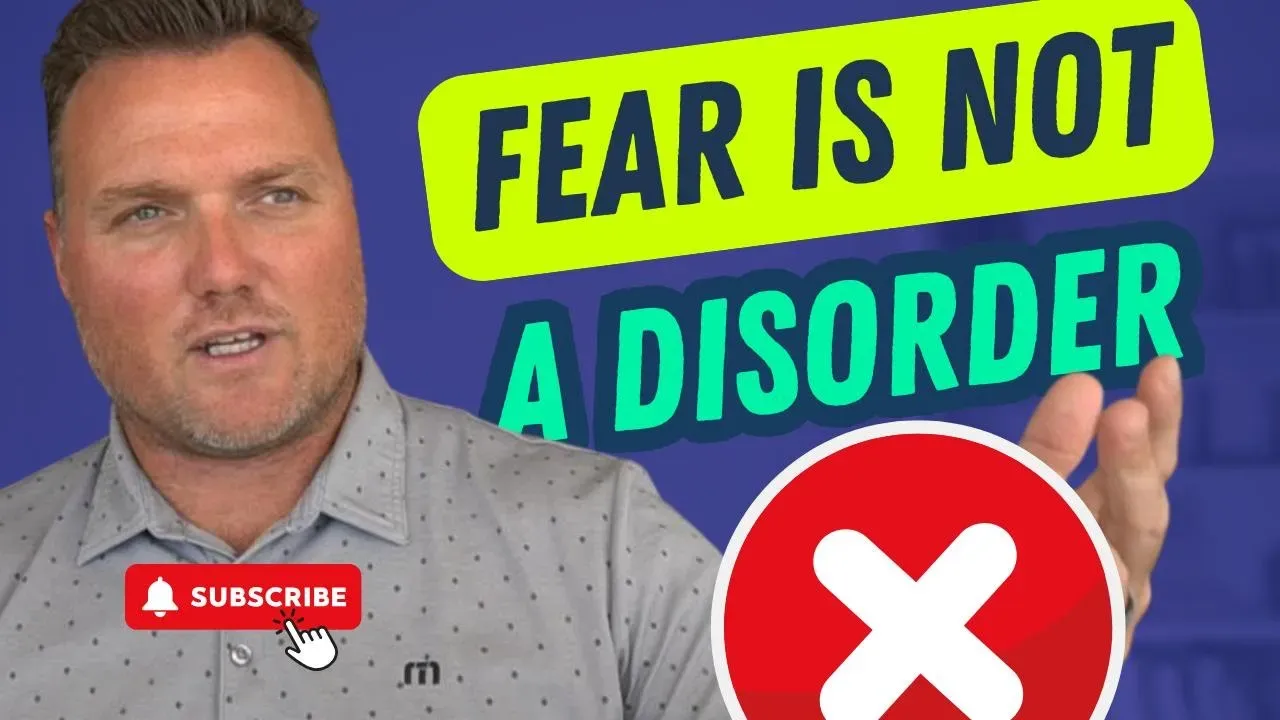Fear Is Not a Disorder | Breaking Free from OCD, Anxiety & Stress
Aug 04, 2025
Fear Is Not a Disorder: Rethinking Anxiety, OCD, and Panic Attacks
By Matt Codde, LCSW
Founder of Restored Minds
When it comes to mental health, one of the most common misconceptions out there is the idea that fear is a disease. As a licensed clinical social worker and founder of Restored Minds, I’ve spent years helping people address issues like anxiety, OCD, and panic attacks. What I’ve found is simple but radical: fear is not a disorder in itself. Instead, our misunderstanding and resistance to fear is what leads to persistent struggle.
Why We Pathologize Fear
In our culture, fear tends to get special treatment compared to other emotions. If you look through the DSM (Diagnostic Statistical Manual for Mental Health Disorders), you’ll see countless variations of anxiety, phobias, and panic attacks — all essentially pointing to different forms and intensities of fear.
But here’s the thing: fear is an emotion. Like any other emotion, it exists on a spectrum — from mild uneasiness and anxiety to extreme panic. Every human being experiences it. Yet, unlike anger, sadness, or grief, society often labels the presence of fear as pathological or abnormal.
The Problem With Projecting Fear
A crucial part of this dynamic is projection. Most of us attempt to avoid confronting fear by projecting its source outside ourselves. We’ll say, “I’m only anxious because of that situation,” or, “If this thing in the world changes, I’ll feel better.” This leads us into a cycle of desperately altering our surroundings to avoid triggering our fears.
Instead of acknowledging that fear is within us — an internal experience — we resist feeling it, staying busy, or distracting ourselves with texting, social media, or endless information consumption.
What If Fear Isn’t the Enemy?
The most important question I ask my clients is: “What if fear isn’t something outside of you to be controlled, but an emotion within you to be confronted and released?”
When we frame fear as a disease, we start believing we shouldn’t feel it at all. This leads to avoidance and coping techniques that keep us stuck. We bounce from trigger to trigger, managing symptoms but never actually healing.
But consider how we treat other emotions:
-
Anger: Ranges from mild irritation to rage, but we don’t call it a disease.
-
Sadness/Grief: Can be a passing moment or overwhelming sorrow, and therapists encourage us to feel it fully.
-
Desire or Guilt: Normal emotional spectrums, not automatic pathologies.
The Real Cause of Disorder
It’s not fear itself that creates disorder in our lives—it’s our resistance, avoidance, and misunderstanding of fear that drives chronic issues. As I’ve seen time and again, when the energy of fear runs everything we do, we experience true disorder. But at its core, the disorder is rooted in our fight against the emotion, not the feeling itself.
Moving Beyond Coping to Recovery
Recovery starts when we change our perspective:
-
Stop pathologizing fear. See it as a natural, passing emotion.
-
Confront and experience fear within yourself. Allow yourself to sit with it and feel it through.
-
Let go of the need to control the world around you. Accept that uncomfortable feelings are temporary and part of life.
When you choose to confront fear instead of endlessly managing it, you set yourself free. This is the difference between a life spent “managing anxiety” and a life lived in trust, peace, and stillness.
Take Ownership of Your Emotional Experience
Being run unconsciously by your emotions — always escaping, projecting, or avoiding — creates real turmoil. Learning to notice, sit with, and process your feelings, especially fear, puts you back in the driver’s seat of your life.
If you’re struggling, remember: Fear is universal, and recovery is possible. By challenging your perspective and building your skills for facing fear, you can create powerful, lasting change.


